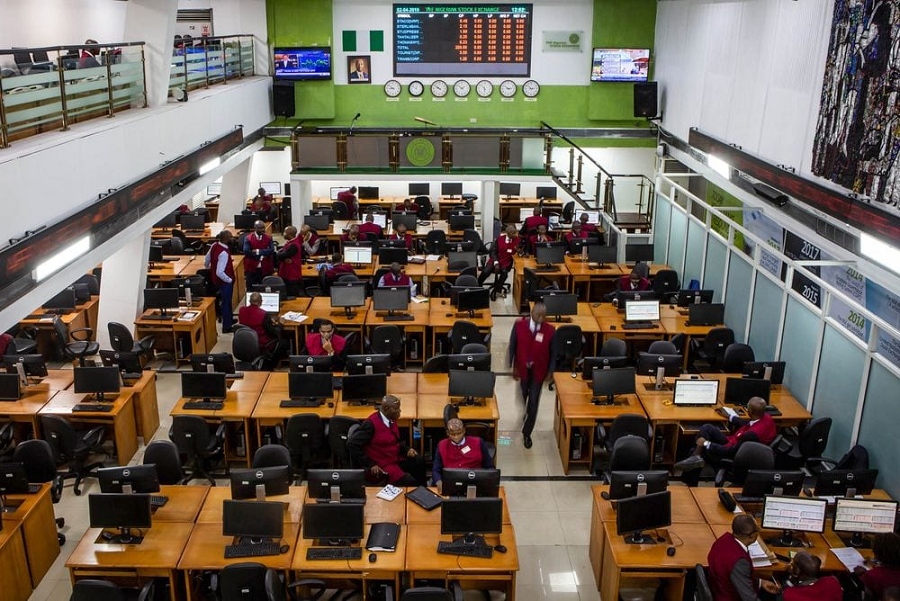The equities benchmark index in Africa’s largest economy has remained below 50,000 index points to close trading at 49,421.91 points on September 21, 2022, as the build-up to the 2023 elections kept foreign investors at bay and sell-offs by domestic investors deepen.
The ASI rose to as high as 54.085.30 on May 27, 2022, but has in the past four months dropped by 4,663.39 basis points or 8.62%.
Statistics obtained by Nairametrics showed that activities on the Nigerian Exchange, which opened the month at N26.880 trillion in market capitalisation and 49,836.51 in index at the beginning of trading on September 1, 2022, closed on September 21, 2022 at N26.657 trillion and 49,421.91 index points, hence has earned a loss of about N223 billion or 083% during the review period.
According to market analysts, despite the downturn being witnessed on the capital market, the equities market presents attractive opportunities for investors in the form of capital appreciation and dividend return, given the low yield environment in the fixed income space.
Also, most of the stocks are still currently undervalued and present an opportunity for growth in the short to medium term. That’s why stakeholders believe this is the right time to take position on some quoted stocks that have strong fundamentals.
For instance, Nairametrics recently tracked some Nigerian bank stocks with the lowest price-earnings (PE) ratios, according to data compiled by Bloomberg, which buttressed the point that most of the stocks quoted on the Exchange have good opportunities in the value investing space.
The price-to-earnings ratio (P/E ratio) is the ratio for valuing a company that measures its current share price relative to its per-share earnings (EPS).
The P/E ratio helps investors determine whether a stock is overvalued or undervalued. A high P/E could mean that a stock’s price is high relative to earnings and possibly overvalued. Conversely, a low P/E might indicate that the current stock price is low relative to earnings.
The current low prices of stocks present investors opportunity to respond to expert advice that in the event of every meltdown in the prices of shares, what investors need to do is to reposition in the face of losses in the prices of shares, where to invest in the market despite recurrent losses in recent times so as to gain in the long run.
What market analysts are saying
- A financial analyst called on domestic investors in the nation’s capital market to leverage on the current low prices of stocks of companies quoted on the floor of the Nigerian Exchange Limited for future gains. The managing director, Crane Securities Limited, Mr. Mike Eze, who stated this in a chat with Nairametrics, said the market was ripe for investment, going by the current low prices of stocks.
- Eze noted that it was obvious that activities would stabilise in the market after the general elections, adding that this was the perfect opportunity for investors to stake their funds in the market. “This is the right time for investors to take part in the equities market, with the prices of shares at their lowest levels. Brokers are confident that after the elections, the market would begin to stabilise and investors would begin to record significant appreciation on their investments.
- “Because with the little amount of funds you will buy large quantity of penny stocks or low price stocks, and that enhances your position as a shareholder. If dividends are declared by such companies, the shareholder will earn sumptuous dividend. “The likelihood of being adopted a director of the company is also guaranteed. But with the highly capitalised stocks, investors may use enormous amounts of funds to buy a little quantity and when dividends are declared, the take home will not be appreciable and then you cannot think of any appointment as a result of your shareholding”.
- A former commissioner for finance in Imo State, and Professor of Capital Markets at the Nasarawa State University, Keffi, Uche Uwaleke predicted that there will be Portfolio rebalancing away from equities to fixed income securities, even as this period has been associated with the exit of foreign investors.
- His words: “Domestic Investors’ sentiment is usually weak as they seek to reduce their market exposure when elections draw closer. The intensity of the impact is usually a function of the degree of political tension and uncertainty generated by political activities.
- “While the ASI depreciated in September for all penultimate election years, it appreciated in January for all election years except 2015. The outlier, January 2015, was the election year that ushered in the present administration, characterized by high tension and uncertainty, compounded by the fall in international crude oil price and the rumoured break-up prediction of Nigeria in 2015 by the United States National Intelligence Council.”
- According to him, the bearish run experienced in the stock market in H2 of 2014 (largely on account of the tension) had lingered into January 2015.
- “To identify mis-priced stocks, the application of ‘Tobin-Q’ or ‘Kaldor’s V’ and Price/Earnings ratios is advised. Ultimately, the best strategy to shield the headwinds is to stay with securities that have solid fundamentals as well as ensure a well-diversified portfolio of investments particularly during electioneering periods,” he advised.
